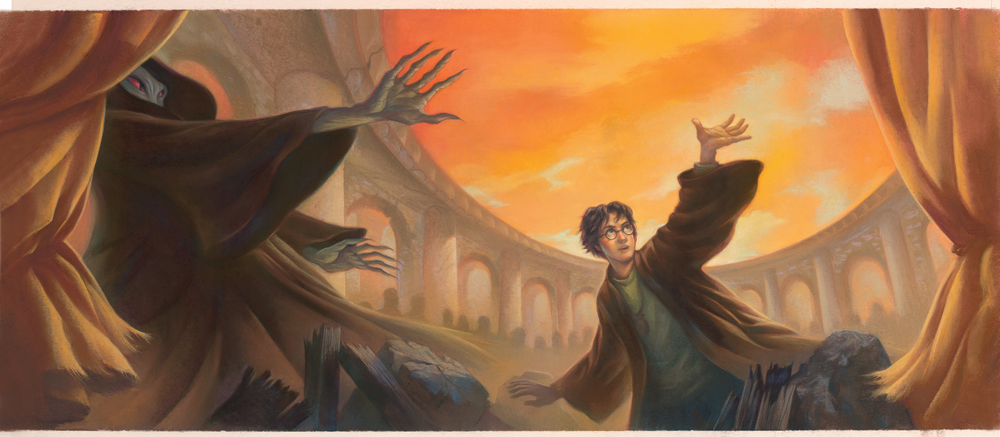Expelliarmus! Such a simple word with such great power. It could have put Reverend Dan Reehil, a pastor at St Edward Catholic School, Nashville, at ease. The ‘spell’ — conjured up by J.K. Rowling and deftly wielded by the fictional boy wizard, Harry Potter, on many occasions — if used successfully, can remove unwanted objects and disarm a person. But evidently the power of words — some more so than others — scares Mr Reehil. The pastor has thus unilaterally decided to ban the Harry Potter series from the school library. According to him, “the curses and spells used in the books are actual curses and spells; which when read by a human being risk conjuring evil spirits into the presence of the person reading the text.” Riddikulus! Yet another spell that could have come to Mr Reehil’s aid; it can expose the silliness that resides within monsters of the mind. Given his apparent aversion to magic, the pastor could even have turned to an English language teacher for some wisdom. Written in dog Latin — classical-sounding constructions of English words, a favourite technique of the great bard himself — these curses and spells have been decoded with ease by generations of young readers.
The pastor, however, is not alone in his misgivings. Since 1997, when Harry Potter first cast his spell over readers both young and old, there have been several attempts to see the books limited, banned or even burned, as was done earlier this year in Poland. Besides religious reservations, people have also been worried that the books promote witchcraft and the occult, and would make children superstitious. Why the witches in Potterverse would succeed in doing something that ones in evermore popular tales like Snow White and Hansel and Gretel have not been able to do is a mystery. Can there be any debate over how many young girls have been charmed by bibbidy-bobbidi-boo? Yet, when have witch-hunts ever been motivated by logic? It should thus not come as a surprise that the pastor singled out Ms Rowling for cooking up a spellbinding world of fantasy when the likes of C.S. Lewis and J.R.R. Tolkien have escaped his wrath. After all, Ms Rowling has to her disadvantage not only her power of imagination but also her gender.
It cannot be denied, though, that Ms Rowling has indeed bewitched her readers. But it is a kind of spell that should be encouraged for fantasy fosters imagination — that singular trait which stimulates all progress. More important, fantasy can present both vital truth and ugly realities in a form that young minds will not be troubled by. Take, for instance, the evil wizard in Harry Potter. The fear of He Who Must Not Be Named, as Voldemort is popularly known, is nothing but the fear of the unknown. By daring to call Voldemort by his name, Harry Potter takes the first step towards vanquishing the darkness. Alas, Mr Reehil never read Harry Potter and thus has been deprived of such wisdom. Maybe the spell, Lumos, can help light finally dawn on him.













